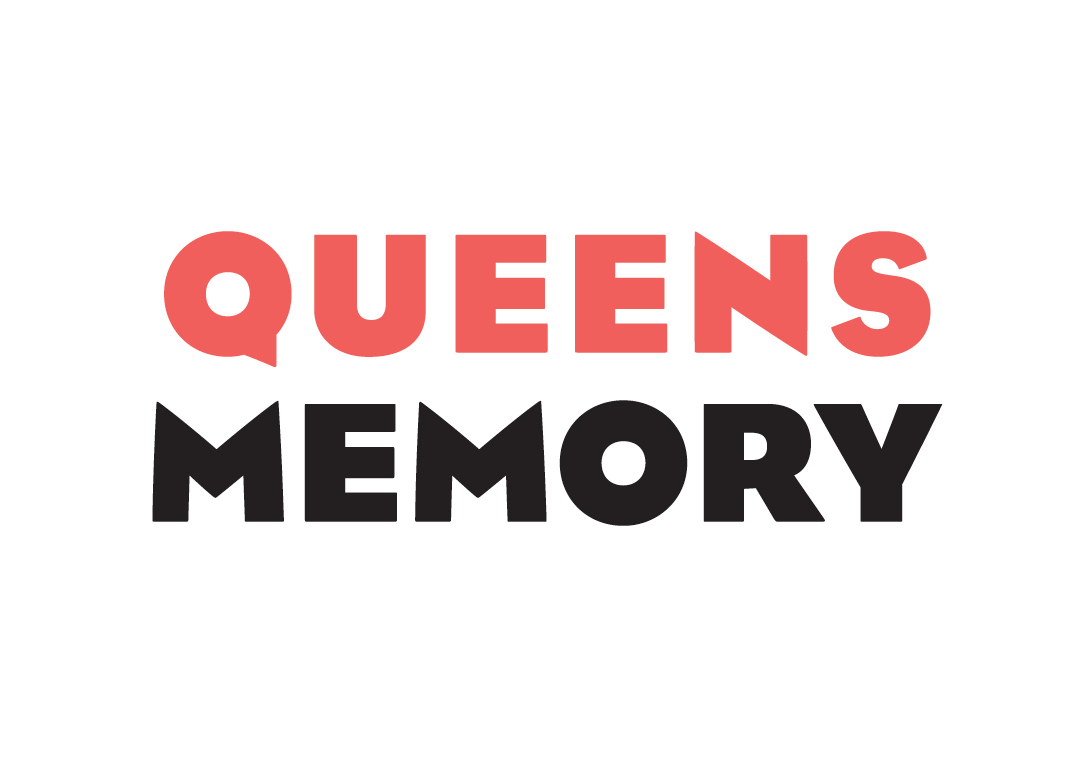Meral Agish, Queens Memory community coordinator, recently held a workshop on conducting oral histories. Queens Memory is a community archiving program supported by Queens Public Library and Queens College, CUNY. They seek to promote local histories in the community through programming and to collect diverse local histories for their collections, while also providing training and materials to help local residents make oral histories that can be included in the collections. Any connection to Queens is a suitable topic for a Queens Memory interview.
The collection, which has nearly 1,000 interviews, has been in existence for eleven years. It tells the stories of the lived experiences of individuals, but also seeks to contribute to the understanding of the collective memory of a place, time or experience. One example is the COVID-19 project, which documents the pandemic through the eyes of ICU nurses and college students, among others. For QPL’s 125th Anniversary year, the library is collecting library memories and experiences. Interviews can be conducted in any language.
Oral histories complicate historical narratives by providing more and different points of view and serve as new primary sources of information. The idea of sharing authority between an interviewer and interviewee is key to oral history, which works through the idea of collaboration between the two. Interviews often revisit different tellings of events. In one interview that Agish shared, Joey Tabaco, a busboy at the Alaskan Pavilion at the 1964 World Fair included in the Memories of Migration series, covers details about place, personal identity, teenage hobbies, school, work, money, family dynamics, and more. Much of oral history is memory work, exploring the way that people remember.
The first steps to conducting an interview are to contact someone you’d like to interview and explain why you’d like to talk to them. Discuss what you’ll cover and how you’ll record, whether in person, on video or on the phone. If you’re conducting the interview for Queens Memory, ask if they’d like their interview to be archived. This is a great way to expand the history that people have access to and to preserve someone’s story for the future. As Agish says, “Everyone is interesting because no one has lived your life.”
As a repository for interviews, Queens Memory stores, preserves, and shares interviews with the public. However, Queens Memory never holds the copyright for interviews, leaving those in the hands of those who did them.
Before you speak to your interviewee, prepare a list of topics. Think about the person’s first-hand experience and areas of expertise. Think about what you want to hear about or learn more about from them. Have a particular question in mind to start the interview, and listen closely in order to ask follow ups based on what they say to you.
Some topics that Queens Memory recommends are family lore and tradition, education, work and leisure, getting around, neighbors and the neighborhood, faith, change over time, and connections to history. For more specific topic recommendations, visit here.
Agish recommended using open-ended questions, as they are an invitation to share one’s story and offer more information. For example, Tell me more about your other memories of the World’s Fair. A closed question would be one that is answered easily by a yes/no answer, such as Was this your first job? Closed questions can be useful for clarification – for example, You mentioned X; was Y?
Other helpful types of questions are follow-up as well as summarizing and concluding; the last two can be similar. An example of a follow up question would be, What was it like starting at a new high school? A summarizing question would be, Before we move on, is there anything you’d like to add? While a concluding question could be, Before we end, is there anything we didn’t cover? These questions show the collaboration between the interviewee and the interviewer, and the shared authority the interviewer has to determine the topics of the interview.
Agish offered some tips for logistics of interviews, such as confirming the day before. Don’t forget to press record, which seems obvious but is something you can easily forget to do in the excitement of the interview. Remember to ask one question at a time and to give the interviewer time to reflect and gather their thoughts – don’t be afraid of silence. Listen and ask follow-up questions. Ask things they didn’t flesh out yet. If someone is stuck on a topic, you can gently move on to another topic. It also helps to keep an eye on the time so you don’t drain your interviewee by making the interview too long; pay attention to their energy level. People can be distracted or unable to focus. Some are talkative while others are more reticent. Work with your interviewee’s communication style.
If you are recording for Queens Memory, you can use their recording kits.
After an interview, send a thank you note and share the recording with your interviewee. If the recording is for Queens Memory, you’ll want to have them sign the consent form. After you submit the interview, Queens Memory will share a transcript with you that you can edit. Interviewees can edit out discrete portions of the interview that they are uncomfortable with or arrange to be anonymous or use a pseudonym.
Queens Memory’s work broadens our understanding of the history of Queens by including diverse voices. They’re excited to hear from you about interviews you’d like to conduct!
To arrange a one-on-one call or meeting with Meral Agish to discuss interviewing for Queens Memory, email her at meral.agish@queenslibrary.org or contact the Queens Memory team at queensmemory@queenslibrary.org.
Queens Memory will hold another workshop on interviewing on Friday, November 12 at 2pm. Register here: https://queenslib.org/3lVVVOv

